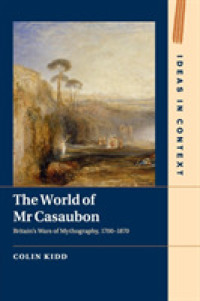Full Description
This book examines the transformations of epistemic governance in education, the way in which some actors are shaping new knowledge, and how that new knowledge impacts other actors in charge of implementing this knowledge in the context of the decision-making process and practice.








